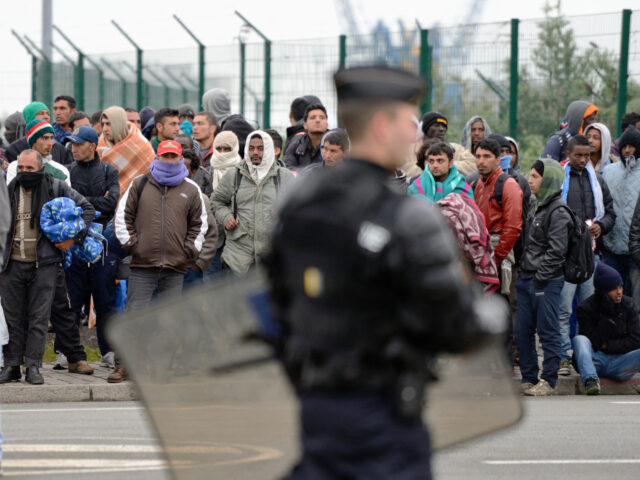Illegal migration into the EU will rise in 2024 despite promises of ‘cracking down’ from politicians and will be a major factor in upcoming elections, a think tank predicted.
This week, the Frontex European Border and Coast Guard Agency reported that recorded illegal migration into the EU hit its highest level since 2016 during the Migrant Crisis, with an estimated 380,000 illegal crossings recorded in 2023.
Meanwhile, according to a report from the International Centre for Migration Policy Development (ICMPD), EU asylum claims rose by 21.2 per cent to one million applications last year, again the highest level since 2016.
The Austrian-based think tank predicted that there will likely be a further surge of illegal immigration into the bloc by migrants seeking to enter European countries — including the UK — before promised restrictions on migratory flows come into place.
“I call it the closed-shop effect. People will hear all these measures on migration announced in election campaigns and will think they have to be here [in the EU] before they come into force,” ICMPD director general Michael Spindelegger told The Guardian.
The ICMPD went on to predict that the likelihood of Donald Trump — who has promised to crack down on illegal border crossings and a massive deportation effort — taking office in the United States will probably result in migrants from countries like Venezuela and Colombia taking advantage of visa-free tourism in Spain to move to Europe rather than in America.
Illegal Migrant Arrivals Highest Since 2015 Migrant Crisis, Says Germanyhttps://t.co/3H7ly30XUE
— Breitbart London (@BreitbartLondon) January 6, 2024
The continued flows of illegal migration into Europe will likely put the issue at the top of the agenda as over 450 million citizens go to the polls for the EU Parliament election in June.
In the wake of recent Islamist terrorist attacks in Brussels and Paris, and surges in largely imported anti-semitic attitudes in Germany, there has been a growing consensus in Europe of the need to finally crack down on mass migration.
With anti-mass migration populist parties on the rise, with the stunning victory of Islam critic Geert Wilders in The Netherlands building on the momentum of right-wing wins in Italy and Sweden, there is also a sense among globalist leaders of the need to act on immigration to stave off populist parties within their own countries from taking power.
Last month, President Emmanuel Macron passed legislation to step up deportations and reduce pull factors of illegals by limiting social service benefits to foreigners. In neighbouring Germany, Chancellor Olaf Scholz has also vowed to step up deportations and has stepped up border controls.
However, it is unclear if disaffected native populations will be convinced by the tough talk from Paris and Berlin after years of open borders policies. The growing anger over immigration has seen the populist Alternative for Germany (AfD) surge to the single largest party in the country, polling at around a quarter of the electorate.
In response, the left-wing coalition government in Berlin has sought to demonise the AfD and their supporters as “far-right extremists”. Sensing the potential of the AfD to win key races at the state level and in the European Parliament, leading left-wing politicians have suggested banning the party outright in order to “protect” democracy from people voting for their preferred party.
EU Sees Asylum Applications Surge by Nearly One Third Over Last Year, as One Million Expected in 2023 https://t.co/8rZZsD86Dk
— Breitbart London (@BreitbartLondon) September 8, 2023

COMMENTS
Please let us know if you're having issues with commenting.